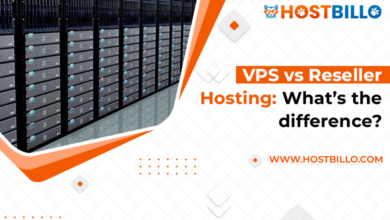NVMe vs. SSD VPS Hosting: What’s the Difference?

Introduction
When you seek an ideal web hosting solution for web-based applications or projects, you can find numerous VPS hosting options in the industry that are considered the most secure & competent ones. Further, whether you operate as a website developer, eCommerce business owner, or professional blogger, the performance of your project is highly impacted by the technology of data storage employed by your web hosting server. Further, the data storage type utilized by your virtual private server largely influences the speed & responsiveness your end users receive.
Therefore, the technologies of storage are evolving at a faster pace in order to provide support for rich, powerful, and high-speed web hosting. Under this guide, we have rendered insights into NVMe vs SSD VPS which are the two most popular & steadfast options that exist presently. Here you will also learn about the key differences between both of these choices and how the NVMe VPS server is superior. But before discussing further anything else, let us first begin by highlighting the meaning as well as the functioning of both NVMe and SSD.
What is NVMe?

NVMe is an acronym used for Non-Volatile Memory express. It is recognized as the latest & innovative communication interface that enables you to surpass the limitations rendered by previous storage technologies. The NVMe protocol has been devised for the most effective utilization of the fastest-speed storage media. It is solid-state just like SATA (Serial ATA) SSDs.
Furthermore, the non-volatile memory (NVM) serves as a memory that has the capability to retain the data stored even during the power cut of the system. On the other side, one faces the loss of data stored on the volatile memory during the power cut. Examples of non-volatile memory include spinning disks, solid-state disk drives, & other disk storage drives. Whereas the NVMe technology makes use of non-volatile memory for retaining the data even when the power gets cut.
Moreover, the NVMe VPS hosting makes utilization of newer interfaces in order to communicate with the central processing unit as well as OS – PCI Express, or PCIe. This interface allows you to have a much faster and smooth experience than SATA or SAS. Also, it has the capability to communicate straight with the central processing unit. This facilitates much higher bandwidth as well as lower response times, which results in greater speeds under the VPS NVMe.
What is SSD?

SSD is an acronym employed for Solid State Drives. It serves as the hardware that makes utilization of solid-state storage technology for storing data while using flash memory. Although there are various kinds of flash storage, NAND storage is considered the most common one.
You must know that solid-state drives (SSDs) considerably offer faster reading & writing speeds as compared with standard hard disk drives (HDDs). However, SSDs do come with certain limitations when it comes to the highest speed for storage protocols. They usually function under the interfaces of SATA & SAS that actually impede the performance of faster drives. Initially, the SATA interface was devised for hard disk drives (HDDs). Then, it was also widely employed for early solid-state drives data storage in order to better support backward compatibility. But with time, SATA started to render constraints to the abilities of solid-state drives data storage.
Thus, for addressing this issue, the developers invented the NVMe protocol which counts on the interface of PCI Express (PCIe). This interface further permits the NVMe VPS hosting to deliver faster speeds, intensified performance, and improved reliability together. Moreover, each one of these lies under the same name of an “SSD”, as they all make utilization of solid-state memory for storing data. Originally, NVMe drives were presented as add-in cards with the interfaces of PCI 2.0 or PCIe 3.0. These were to be linked to the PCIe socket of the server’s motherboard. Then later, 2.5” VPS NVMe drives were constructed that can get coupled to the motherboard through a U.2 or U.3 connector.
Difference between NVMe and SSD

Below-mentioned listed are the key differences you can find between NVMe and SSD. Let’s get a quick glance at them!
Cost
You must apprehend that reliability as well as power comes at a certain price. Therefore, it is evident that the NVMe VPS server will come at a comparatively higher cost than the usual SSDs. You must always remember to invest in NVMe storage over multiple web servers when it comes to hosting mission-critical web pages & workloads. Further, the overall cost of operation is actually lesser when you consider downtime as a key aspect. Without any doubt, many users go through a significant revenue loss because of downtime.
Speed
Another factor that gives NVMe VPS hosting an upper hand is speed. On average, solid-state drives operate at the speed of 400 MB/s. On the other hand, the NVMe storage goes ahead in this parameter with an average speed of 4000 MB/s. Thus, you must take into consideration the NVMe storage servers for acquiring the benefit of maximum online availability as well as faster performance. This further enables you to deliver enhanced performance to your end users.
VPS Hosting has gained huge popularity in the past few years. Learn more about what is VPS Hosting, how it works, and what are its use cases.
What is NVMe VPS Hosting?

VPS refers to a web hosting solution that runs a virtual environment on a physical server. A web hosting provider offers it as a service. A central physical server can operate multiple virtual private servers simultaneously, each possessing its own dedicated web resources. With the VPS, you get the freedom to pick the preferred operating system and implement the desired configuration settings. It serves as the highly cost-effective option that offers the high-grade benefits of a dedicated web hosting platform.
Speaking of NVMe VPS hosting, it is a virtual private server hosting that makes use of NVMe solid-state storage. These drives employ the interface of PCIe, which is constructed to provide excellent data transfer speeds as well as supreme overall performance. With the NVMe VPS server, you can have capitalized low latency and the powerful nature of SSDs. An NVMe virtual private server hosting functions much better than a standard SATA solid-state drives VPS.
Also Read: How to Install Ubuntu Alongside With Windows in Dual-Boot
Why Does it Matter to Upgrade to NVMe VPS?

Here are the reasons why you must take into consideration the upgrade of the NVMe VPS server –
Quick data loading
The NVMe drives operate at a faster speed as it constitutes a greater number of Disk I/O (Input Output operations). So, they easily manage multiple queries without any performance lag and immediately retrieve data. As a result, the data transfer becomes quick and your website delivers the least loading time.
Enhanced Database Performance
A database is responsible for handling more outputs & inputs in websites, especially in eCommerce stores & blogs. So, it is required to perform at lightning speed in order to respond to queries quickly. With HDD web hosting solutions, the database query takes lengthy load times. Whereas NVMe VPS possesses boosted read & write speeds that help you eliminate this database efficiency constraint.
High Queue Command Depth
NVMe drives make use of numerous queuing processes. On the other side, SATA solid-state drives can only handle one command at a single moment with 32 queue command depth. SAS interface lets you attain 254 queue command depth. However, the most exciting fact is that the new NVMe technology can handle 64,000 queues, and permit 64,000 entries per queue. This enables you to have the ultimate system responsiveness.
Wrap up
By comprehending all the tangible and non-tangible benefits of NVMe VPS server hosting discussed in this guide, you must have learned how the NVMe serves as the better choice over SSD, especially when it comes to intensified server performance & fastest responsiveness of your website or applications. Further, the features of NVMe have the capability to efficiently handle resource-intensive projects without inducing any performance lags and slow loading times. The NVMe VPS web hosting is the perfect option for businesses that are striving to operate high-performance applications, web-based services, or websites that require the fastest possible speed. It also lets you have high power capacity and better technical efficiency than the usual solid-state drive data storage. At the same time, the NVMe is also compatible with most devices, including every major OS such as Linux & Windows.




